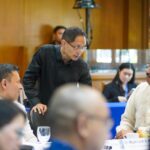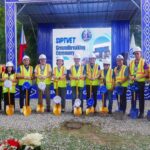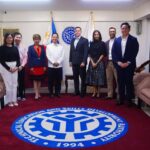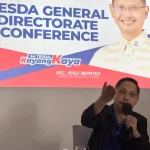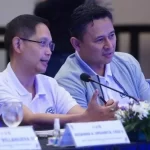Be part of growing IT industry, DICT urges 3rd District students

September 4 2023
Mark L. Garcia
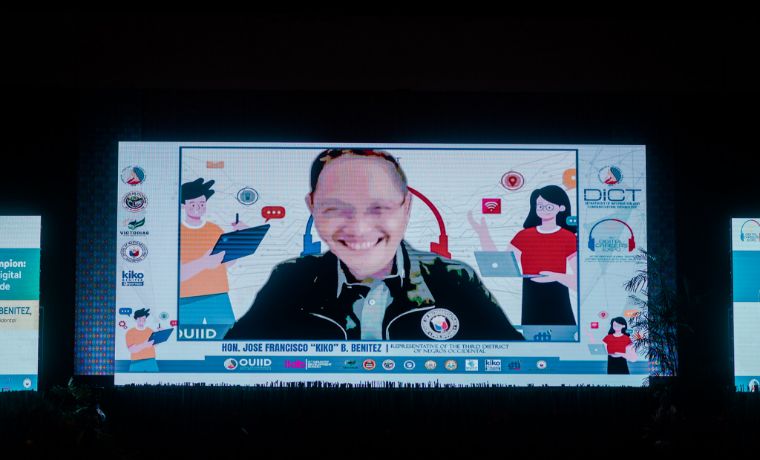
A Department of Information and Communications Technology (DICT) official urged students in Negros Occidental’s Third District to engage in IT-related courses to help create an innovation-driven economy.
DICT Undersecretary Jocelle Batapa-Sigue urged the more than a thousand students from the Third District to be part of the growing IT industry in the country during the Digital Careers Expo in Victorias City on Monday, September 4.
The DICT target is to reach 2.5 million employed in the IT-BPM industry in the country by 2024.
Batapa-Sigue , in her speech, said that it is important to have an innovation-driven economy to ensure that we are not just consumer-driven but also “manufacturers, builders, and programmers of a lot of products created by young minds.”
The DICT is aiming for a 50:50 ratio of women enrolled in IT-related courses by 2028, Batapa-Sigue said, stressing that women should also be involved in hardcore IT courses.
Batapa-Sigue was one of the speakers at the career expo together with ICT Industry Development Bureau Chief Yvette Cabrera, Department of Trade and Industry-6 Director Ermelinda Pollentes, Department of Science and Technology-Negros Occidental Science Research Specialist Glady Reyes, and Negros Occidental Language and IT Center Administrator Ma. Cristina Orbecido.
The expo, with the theme “Accelerating Global Digital Careers in the Countryside”, was attended by close to 2,000 students and stakeholders from the ICT industry.
The expo also featured 25 exhibitors from various sectors of the ICT industry.
Victorias City Mayor Javier Miguel Benitez said the career expo is one of the initiatives of the district in creating steps to create government infrastructure programs that will minimize the digital divide.
The mayor, in his speech, said that as the Third District aims to be a leader of digital innovation in the province.
Rep. Jose Francisco ‘Kiko’ Benitez (Neg. Occ., 3rd District), who addressed the audience via Zoom, emphasized the need for digital transformation to harness the potential of the digital age.
Benitez stressed the significance of digital infrastructure, including internet access and spectrum management, as the foundation for bridging the digital divide and facilitating the transition to a digital economy.
“There are a number of things we need for this transition and certainly digital infrastructure is the physical hardware that is necessary to bridge the digital divide”, he said.
Benitez called for curriculum revisions to integrate digital literacy from primary education onwards, stating, “Reskilling and upskilling has emerged as a lifeline, enabling us to not only survive but thrive in the digital age.”
He also acknowledged the need for synergy between digital technologies and creative industries. He emphasized the need to support digital media, software development, and creative content creation, saying, “We also recognize the nexus of digital and creative industries.”
Benitez also highlighted a series of bills the House has passed and is working on aimed at propelling the country towards digital transformation. These include House Bill No. 68 (Digital Philippines Bill), House Bill No. 1445 (Jobs Next Bill), and Republic Act No. 11927 (Digital Workforce Competitiveness Act).
“These bills frame reskilling not only in terms of raising digital literacy but also in terms of developing critical thinking, complex problem-solving, communication and collaboration skills”, the congressman said.
Benitez challenged all attendees to embrace reskilling as a means of transforming careers and embracing change in the digital era. He emphasized the role of lifelong learning in future-proofing individuals and societies.
“Let us work together to ensure we Negrenses are empowered in the face of technological disruption. Let us work together and help Negrenses to build digital careers and go global,” Benitez said.*

